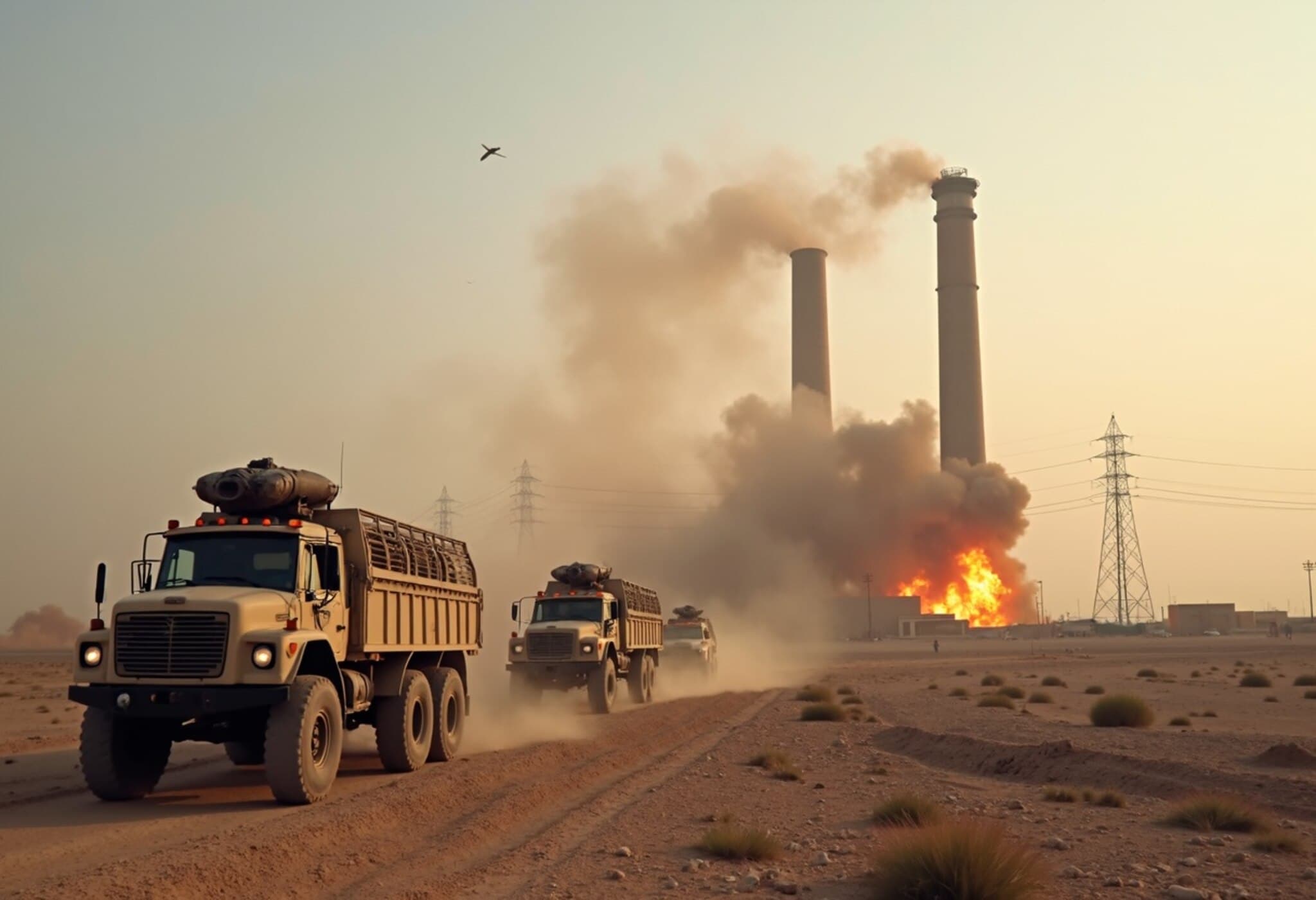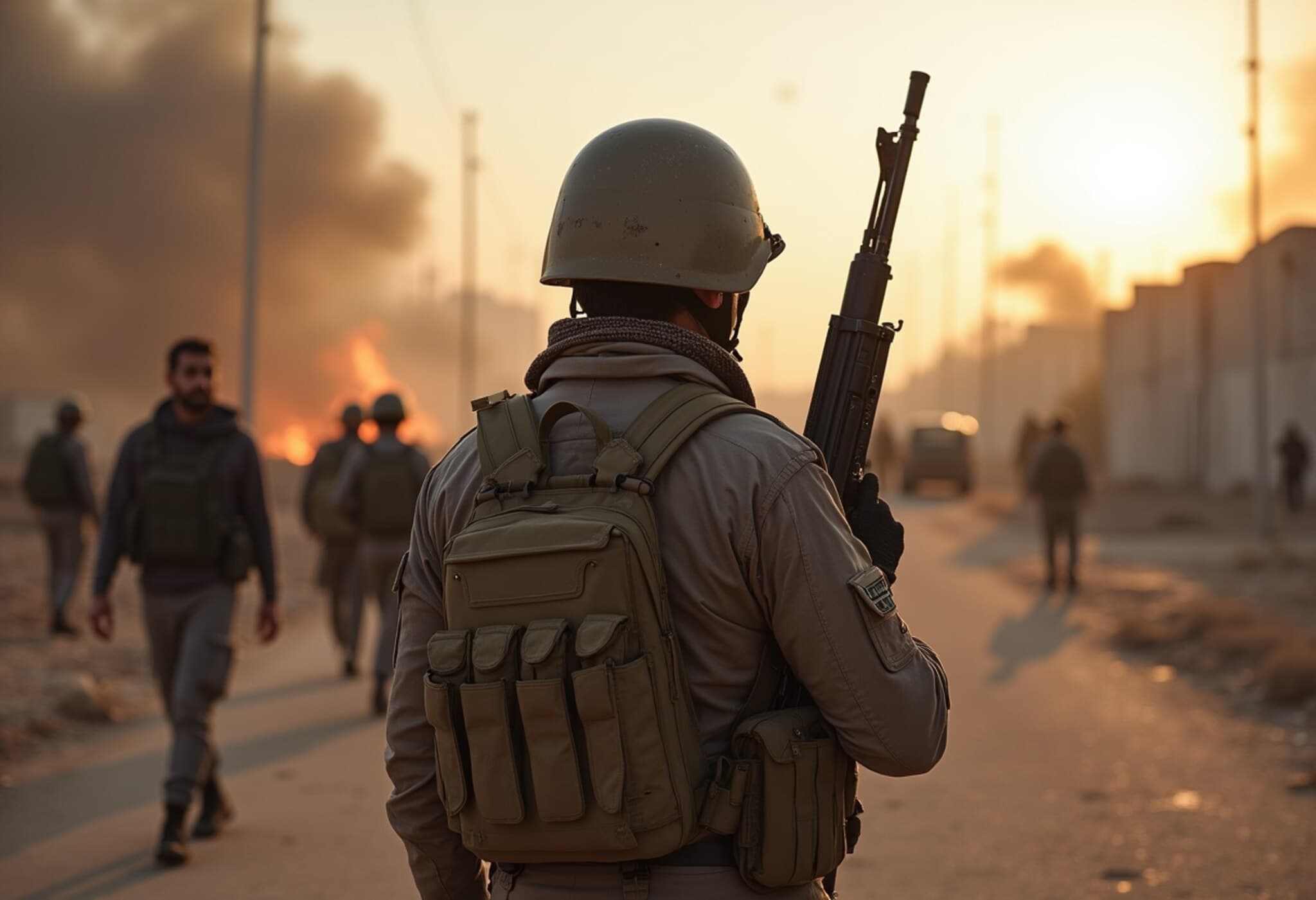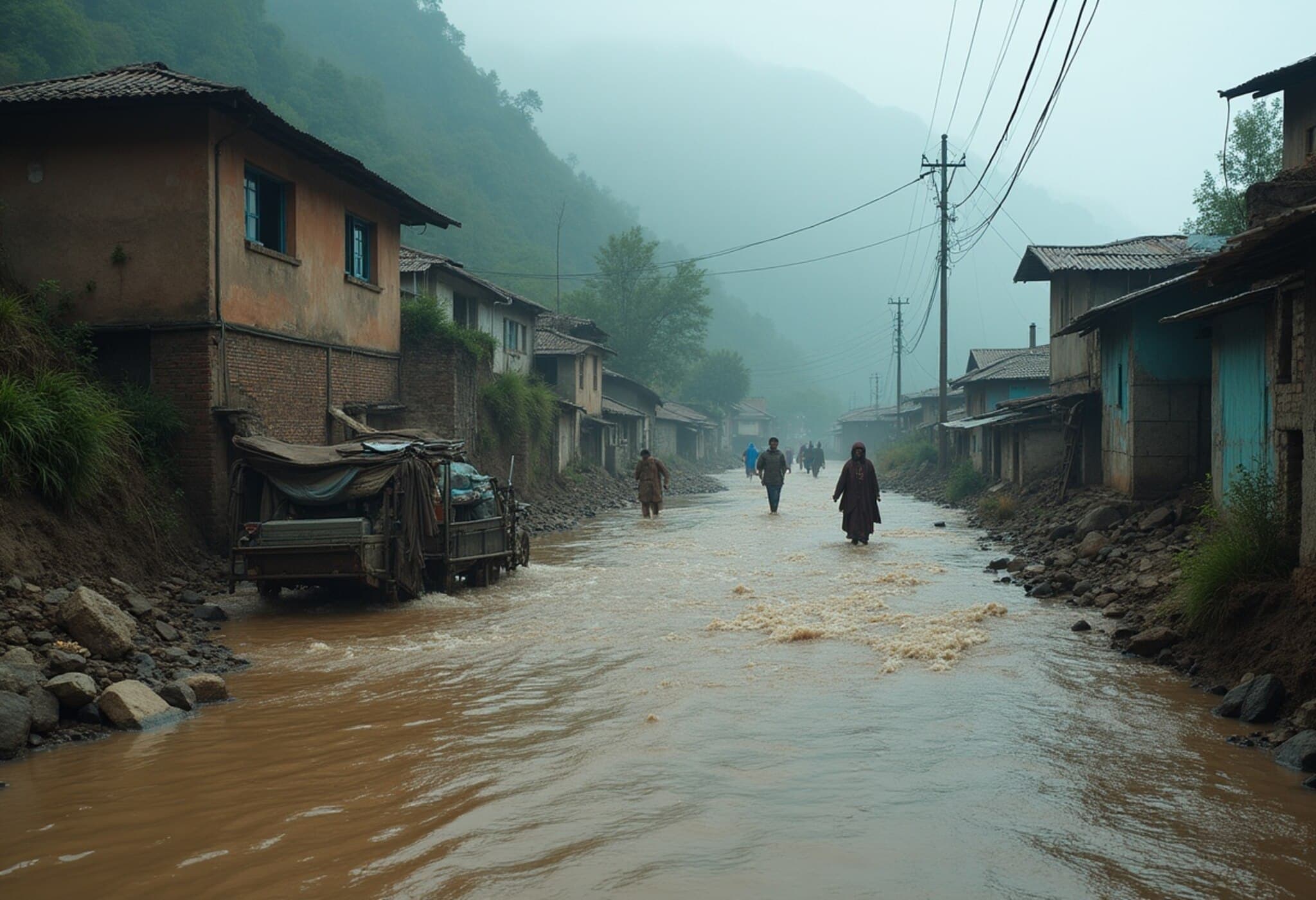Israeli Navy Targets Power Plant in Yemen’s Capital Sanaa
In a significant escalation in the already volatile landscape of West Asia, the Israeli Navy conducted a strike on a site in Yemen's capital city, Sanaa, on Sunday. The Israel Defense Forces (IDF) identified the target as a key infrastructure facility allegedly used by the Houthi movement for terrorist purposes.
Details from Yemeni Sources and Local Impact
Local Yemeni media outlets, along with international agencies such as Reuters, reported hearing at least two powerful explosions near the Haziz power plant located in the southern part of Sanaa. Immediately following the incident, Mashal al-Rifi, CEO of the Sanaa Electric Corporation, confirmed that the power facility was attacked and experienced a temporary outage.
Adding to the chaos, Hazam al-Asad, a member of the Houthi political bureau, condemned the strike on social media platform X (formerly Twitter), denouncing the Israeli military action as a deliberate assault on civilian infrastructure, particularly citing the attack on essential electricity and water services.
According to a civil defense official speaking to the Houthi-affiliated Al Masirah TV, the strike targeted generators at the Sanhan area plant, causing operations to halt while emergency teams worked to extinguish arising fires.
Israeli Perspective: Strategic Justification and Regional Context
The IDF released a statement emphasizing that the strike was launched from more than 2,000 kilometers away, deep inside Yemen, focusing on an energy infrastructure site purportedly operated by the Houthi “terrorist regime.” The military linked this operation to retaliatory measures against repeated Houthi attacks targeting Israeli territory, including surface-to-surface missile launches and drone incursions.
The Israeli Defense Forces accused the Houthis of acting under Iranian direction and funding, leveraging maritime routes to threaten Israel and its allies, as well as global shipping lanes. The statement underscored Israel's commitment to countering these threats proactively and decisively, signaling preparedness to strike wherever necessary to protect its national security interests.
Broader Geopolitical Ramifications and Timing
This naval strike is part of a broader pattern of Israeli military operations targeting Houthi positions in Yemen, with the last reported Israeli airstrikes occurring roughly a month ago during Operation Long Shadow. That campaign targeted Houthi military infrastructure, fuel depots, and vessels at the strategic port of Hodeidah — signifying an ongoing effort by Israel to disrupt what it perceives as threats emanating from Yemen's coast.
These actions reflect the escalating proxy conflict in the region, where Iran's support for the Houthis plays into larger strategic calculations involving Israel and its neighbors. The location of Yemen along critical maritime chokepoints like Bab-el-Mandeb intensifies global economic stakes since disruptions here could impact major international shipping and energy flows.
Expert Insight: What This Means for Regional Stability
Security analyst Dr. Miriam Katz notes, "Israel’s capability to project naval power over such vast distances illustrates a new dimension in its strategic reach. Targeting Yemeni infrastructure used by the Houthis sends a clear signal not only to Iran but to other regional actors that Israel remains vigilant and ready to confront threats beyond its immediate borders."
Yet this raises urgent questions about the humanitarian consequences of disrupting critical civilian infrastructure in a country already grappling with one of the world’s worst humanitarian crises. Yemen’s fragile grid means power outages exacerbate hardships, potentially fueling further resentment and instability.
Looking Ahead: The Challenges That Remain
As the conflict dynamics in Yemen entwine ever deeper with Israeli-Iranian rivalries, international observers underscore the necessity of de-escalation and renewed diplomatic efforts to prevent broader regional conflagration. Meanwhile, the civilian population remains caught in the crossfire, highlighting the heavy human cost of this protracted conflict.
Key Questions Raised by This Incident
- To what extent can military strikes on infrastructure selectively avoid worsening civilian suffering?
- How will Israel’s naval operations in Yemen reshape maritime security and international shipping routes?
- What role can U.S. and international diplomacy play in curbing Iran-backed proxy conflicts escalating in the Arabian Peninsula?
Editor's Note:
This latest strike by the Israeli Navy against the Haziz power plant shines a spotlight on the complex and multi-layered nature of Middle Eastern geopolitics. Beyond the immediate military objectives, it underlines the strategic importance of Yemen's geography and the stark humanitarian dilemmas posed by such interventions. Policymakers and observers alike must balance robust security measures with diligent attention to the dire needs of affected civilian populations. As tensions simmer, the path to sustainable peace demands nuanced engagement that goes beyond military calculus.











